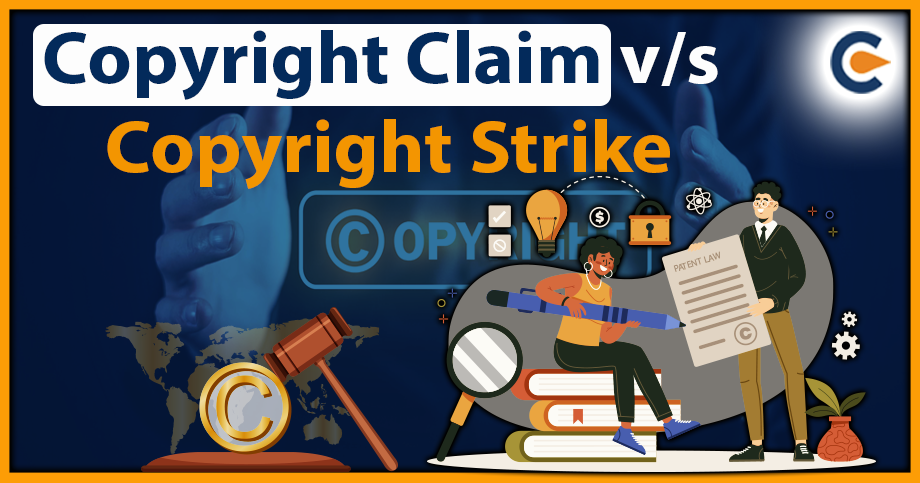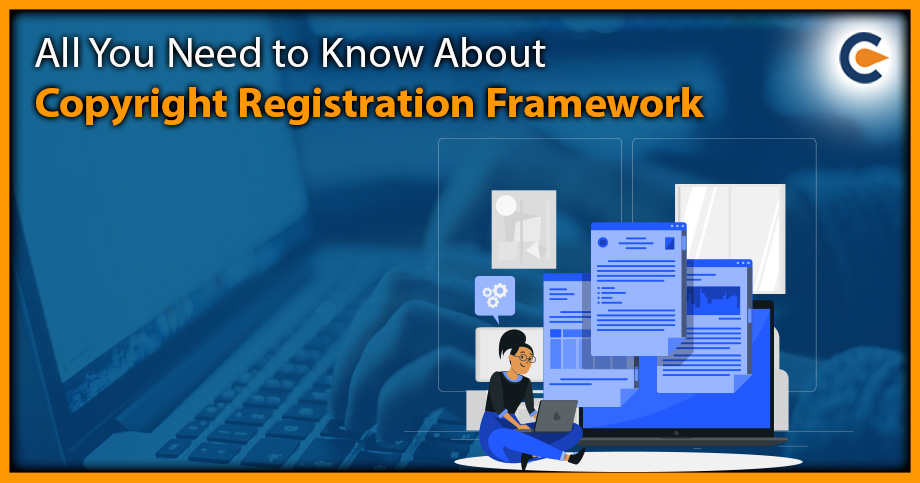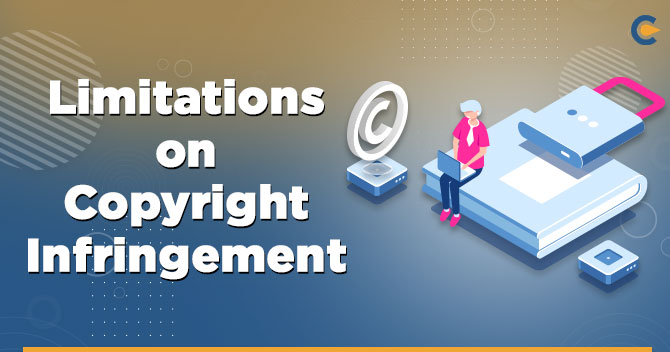A key component of preserving intellectual property rights is copyright protection. It is a legal idea that gives authors of original works the sole right to choose how they are used and distributed. By enabling creators to manage the use and distribution of their work, copyright protection promotes innovation and creativity. This control enables creators to make money from their work and support themselves through their work. It also safeguards the work’s value by preventing unlawful copying, distribution, or usage.
By fostering innovation and creativity and expanding industries like publishing, music, film, and software development, copyright protection benefits not only individual creators but the entire economy. With copyright protection, creators will be encouraged to create unique works, and unauthorized use or copying may diminish the value of their creations. To encourage creativity and safeguard the rights of creators, copyright protection is crucial.
What Is A Copyright Claim?
A copyright claim is a formal legal statement made by the owner of the copyrights to a piece of original work that has been used or distributed without the owner’s consent or an authorized agent. In most cases, the claim informs the suspected infringement that they are using copyrighted content unlawfully and demands that they stop. A wide variety of works, including but not limited to music, artwork, pictures, films, and textual works, are subject to copyright claims.
How Does Copyright Claims Work?
A copyright claim is a legal notice that someone else uses your copyrighted material without permission. The claim is made by the copyrighted content owner, who feels that their rights have been violated. The owner can submit a claim to the website or platform hosting the content, such as Facebook or YouTube, and ask to remove the infringing material. The website or platform hosting the content will normally instantly delete the infringing content after receiving a copyright claim. When a copyright claim is made, the platform or website may notify the individual who posted the illegal material that their content has been removed.
There are many levels of severity associated with copyright claims. Some can be more significant and lead to legal action if unresolved, while some claims are not severe and may only ask the person to remove the content. It’s crucial to respond straight away if you get a copyright claim. Reviewing the allegation and determining its integrity is the first step. If so, you should delete the offending material and react to the accusation by acknowledging that you utilized the item without authorization and accepting responsibility for the infringement.
You may dispute the allegation if you think it is not legitimate. You must present evidence to support your claim in this situation, such as confirmation that the content is not protected or that you have permission to use it. It’s crucial to take copyright claims seriously and respond correctly if you receive one. By doing this, you can help ensure that you respect other people’s rights and stay out of trouble with the law.
Examples of Situations That May Result In a Copyright Claim
Here are some examples of situations that may result in a copyright claim:
- Inappropriate use of music with copyrights in a podcast or video.
- Republish a blog post or article without the author’s consent or appropriate acknowledgement.
- Making unauthorized or incorrect use of another person’s photos or images.
- Using some person’s graphics or artwork without their consent or due attribution.
- Making unauthorized or incorrect use of a trademarked slogan or logo.
- Making a derivative work without authorization or giving due credit, like a parody or remix.
- Using copyrighted artwork without permission or without proper credit in merchandise sales.
- Utilizing sections of a book or other written work that is protected by copyright without permission or giving due credit.
It’s important to note that just because something is available online does not mean it’s free to use. It’s always best to assume that anything you come across online is protected by copyright and to seek permission or use a licensed version to avoid receiving a copyright claim.
Consequences of Receiving a Copyright Claim
Receiving a copyright claim can have serious consequences. Some of the most common consequences of receiving a copyright claim include the following:
1. Content removal: When a copyright claim is filed against your content, the copyright owner may ask that the platform (such as YouTube, Instagram, etc.) hosting the content remove it. Because of this, your audience might need help accessing your material.
2. Revenue loss: If your content is taken down as a result of a copyright dispute, you can lose the money you were making from it. If you monetize your YouTube videos, for instance, a copyright claim can lead to demonetization or the removal of adverts from your videos, which would result in a loss of money.
3. Copyright strikes: If your content is repeatedly the target of copyright assertions, copyright strikes may be imposed. If you receive too many strikes, the platform may suspend or delete your account and prohibit you from adding new content.
4. Legal action: In some circumstances, owners of the copyright may decide to file a lawsuit against content producers who infringe on it. Legal fees, penalties, and possibly legal action may come from this.
What Is A Copyright Strike?
A copyright holder who believes their rights have been violated may file a lawsuit against the offender, which is known as a copyright strike. A copyright holder can complain with the appropriate site, such as YouTube or Facebook when they discover that their work has been utilized without their consent. The platform may impose a copyright strike on the user who posted the content if it determines that it violates the rights of the copyright owners. In addition to other consequences, such as the suspension of the person’s account or legal action against them, this could lead to the removal of the content. Several copyright violations in certain circumstances may permanently delete a user’s account from the platform.
How Does Copyright Strike Work?
A copyright strike is a legal action initiated by the owner of the copyright or their designated agent against a person or group that they claim has infringed on their copyright. A copyright strike aims to uphold the exclusive rights of the copyright holder and prevent the use or dissemination of their work without authorization.
A copyright holder has the right to send a copyright takedown notice to the infringing party when they become aware of a copyright infringement. This notification often contains details about the copyrighted work, the URL where it is being used illegally, and a request to remove the offending material. The copyright proprietor may file a copyright strike against the infringing party if they disobey the takedown notice. To uphold their legal rights and seek compensation for the unauthorized use of their work may entail taking legal action, such as filing a lawsuit.
Once a copyright strike has been issued, the offending party may be forced to take down the work or risk legal repercussions, including fines or injunctions. In some circumstances, the person who committed the infringement may additionally be obligated to compensate the copyright owners for any monetary losses they may have sustained as a result of the violation.
Examples of Situations That May Result In a Copyright Strike
A copyright strike can be issued when someone’s content is found to infringe on the copyright of another person or entity. This can happen in various situations, including:
- The owner of the copyright has the authority to impose a copyright strike if a video contains music that was used without the creator’s consent.
- Uploading copyrighted media without authorization will include doing so while uploading movies, TV series, or other copyrighted media without the owner’s consent. Even after being updated or changed, the content might still be covered by copyright laws.
- If someone uses images that are protected by copyright in their content without that person’s consent, the image’s owner may issue a copyright strike.
- If a Trademarked Name or Logo is used without permission, a copyright strike may be issued.
- Without authorization, a person may be subject to a copyright strike if they repost another person’s content. This is true even if they give the original author credit.
Consequences of Receiving a Copyright Strike
A copyright strike is a more serious action that can have significant repercussions for the person who receives it. A copyright strike is a formal warning that a user has submitted something that violates the copyright of another person’s protected work to a digital network (like YouTube or Facebook). The strike usually contains information about the copyrighted content that was used without authorization as well as the owner’s contact details so that the user can try to remedy the issue. The user risks more warnings, account suspension, or termination if they don’t fix the problem or persistently break copyright laws.
The consequences of receiving a copyright strike can be severe, including the following:
- Content Removal: If the content in question is taken down from the platform, there may be a loss in exposure, money, and views.
- Legal Action: In extreme circumstances, the copyright owner may choose to file a lawsuit against the user for copyright infringement, which might lead to hefty penalties or even jail time.
- Reputational Damage: Getting a copyright strike can harm a user’s credibility as a content producer and result in a loss of subscribers and income.
Differences between Copyright Claim and Copyright Strike
A copyright claim is a statement that a third party has found information on a platform, such as YouTube or Facebook, that they allege violates their copyrighted works. The party making the claim has two options: they can ask for the removal of the content, or they can let it stay and profit from it. Copyright assertions are frequently made using automated tools, like YouTube’s Content ID, and are not always indicative of malice.
A copyright strike, on the other hand, is a formally made legal request for content removal from a platform by the copyright owner or their representative. A copyright strike, as opposed to a copyright claim, is a serious legal action that can have substantial repercussions for the accused party. Repeated copyright violations in some circumstances may lead to the account of the accused person being suspended or terminated.
The severity of the penalties is one of the primary distinctions between a copyright claim and a copyright strike. A copyright strike can have long-lasting implications on the accused party’s reputation and ability to use the platform, while a copyright claim may lead to the removal of content or the monetization of it by the copyright owner.
To properly reply if you get a copyright notification, you must be aware of the distinctions between these two ideas. You can negotiate a settlement with the copyright owner if you get a copyright claim. Nonetheless, if you receive a copyright strike, it’s crucial to get legal counsel and take the necessary steps to prevent additional repercussions.
Conclusion
Everybody who creates or uses copyrighted work must grasp the distinction between a copyright claim and a copyright strike. A copyright strike is a more serious action that can lead to removing your content or perhaps cancelling your account. In contrast, a copyright claim is a notification that someone else has asserted ownership of your content. To prevent further repercussions, it’s crucial to reply appropriately to both a copyright claim and a copyright strike.
Maintaining a just and equitable creative environment requires respecting copyright rules and preserving intellectual property[1]. Producing original content and securing authorization before using someone else’s creations is crucial. By doing this, we can ensure that innovation flourishes and that content providers are adequately compensated for their work. To avoid legal troubles or penalties, always abide by copyright rules and take the proper steps while handling copyright claims or strikes.
Also Read:
Copyright Disclaimer Under Section 107
Ownership And Authorship Of Copyright In India
Copyright Infringement Notice In India: Complete Overview











